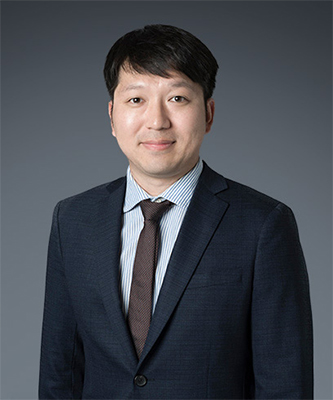본문
Compensatory Travel Post COVID-19: Cognitive and Emotional Effects of Risk Perception

By prof. Youngjoon Choi,
Department of International Office Administration
Research Profile
young.choi@ewha.ac.kr
The COVID-19 pandemic has created an unprecedented and devastating impact on the travel and tourism industry worldwide. To sustain tourism organizations in the post-pandemic period, it is crucial to understand the factors that maintain, boost, or diminish the potential demands of international travel. The concept of revenge travel and revenge spending was recently introduced by the media to capture people’s desire to consume and travel more to compensate for the missed pleasure and excitement that were taken from them for an extended time. However, an important question arises as to whether the actual demand for travel will escalate to the “compensatory” level in a post-pandemic world where people take extra trips, add more destinations to their lists, and invest more in dining out and traveling.
Some may argue the idea of compensatory travel is too optimistic while others may say it represents a realistic and practical implication of the current phenomenon. With faith in the industry’s resilience, travel and tourism organizations are counting on the prospect of compensatory travel. However, little is known about the factors affecting potential demands and compensatory travel intention in a post-pandemic world. Hence, this study attempts to conceptualize compensatory travel and to investigate tourists’ cognitive and emotional processes that link risk perception about COVID-19 and compensatory travel intention.
In this study, compensatory travel is defined as traveling for longer periods of time, spending more on travel expenses, or traveling more frequently to satisfy suppressed leisure necessities that were not fulfilled due to certain constraints (such as restrictions imposed in response to COVID-19). While research shows that consumers who experience psychological deficiencies tend to exhibit compensatory consumption behavior, it is unclear what factors actually predict compensatory travel intentions. As the extant research has not explicitly examined the predictors of compensatory travel, it is necessary to investigate consumers’ cognitive and emotional processes that influence compensatory travel intentions.
Tourists commonly experience mixed feelings about travel when anxiety and unfilled needs coexist due to health-related crises. For instance, the current pandemic has suppressed travel demands because travel is regarded as a risky behavior that can potentially harm tourists’ own health and infect others. At the same time, as strict and prolonged travel restrictions are imposed, people’s push motivations to get out of their daily routine can become stronger. In this regard, we proposed a dual-process model of compensatory travel that explains how tourists’ travel desire and intention are affected by both travel anxiety and escape motivation. This model shows two paths that illustrate how risk perceptions of COVID-19 lead to travel desire and intention: suppressing and accelerating paths. These seemingly conflicting psychological processes work simultaneously in an individual’s psychological mechanism, either decreasing or increasing compensatory travel intention.
To test the dual-process model of compensatory travel, this study adopted a mixed-method approach. First, semi-structured in-depth interviews were conducted to (a) explore tourists’ risk perception of international travel and latent travel desire during the pandemic and (b) conceptualize compensatory travel consumption post COVID-19. Second, an online survey was conducted to test the proposed hypotheses and tourists’ psychological mechanisms in the dual-process model.
The findings showed that two seemingly conflicting psychological paths demonstrate the impact of individuals’ perception about COVID-19 on their travel desire and compensatory travel intention. On one hand, the suppression effect of COVID-19 was discovered by examining the interrelationships between individuals’ risk perceptions of COVID-19, their appraisal of travel risk, travel anxiety, and travel desire. Indeed, individuals’ perceptions about COVID-19, appraisal of travel risk, and travel anxiety were positively related, while travel anxiety was negatively associated with travel desire. The study findings indicate that external changes caused by a health-related crisis increased travel-specific risk appraisal and perceived anxiety, which eventually suppressed travel desire.
On the other hand, the acceleration effect of COVID-19 was found by examining the interrelationships between individuals’ risk perceptions of COVID-19, life satisfaction, escape, and desire. Findings show that the risk perceptions of COVID-19 negatively affect temporary life satisfaction, and the degradation of life satisfaction pushes people to escape, which then leads to a higher desire to travel. By examining the role of push motivation in the relationships between life satisfaction and travel desire under a unique travel restriction circumstance, the study’s findings contribute to the discourse of the two-factor (push and pull) motivation theory. Particularly during a health-related crisis, push motivation (vs. pull motivation) could be more salient and play a significant role in increasing travel desire.
This study shows that individuals desire to travel, and their desire positively affects compensatory travel intention. These findings offer important insights into response and recovery strategies for travel and tourism organizations. While the modest presence of travel desire sounds optimistic, our model also suggests that individuals go through both the suppressing and accelerating processes to reach the desire state. Thus, it is recommended that managers focus on intensifying the accelerating effect while minimizing the suppressing effect through the strategies mentioned above. One way to trigger the accelerating mechanism is to turn push motivations into desire through marketing/sales strategies that translate escape motivation to actual desire. Managers also need to carefully monitor and examine consumers’ changing attitudes, behaviors, and purchasing patterns related to travel and tourism products, so they can develop more targeted and customized strategies. Answering and responding strategically to these specific needs and changes in demand will not only help businesses recover from the crisis but further create a new revenue source.
* Related Article
Ellen Eun Kyoo Kim, Kwanglim Seo, Youngjoon Choi, Compensatory Travel Post COVID-19: Cognitive and Emotional Effects of Risk Perception, Journal of Travel Research, Volume 61, Issue 8, November 2022










